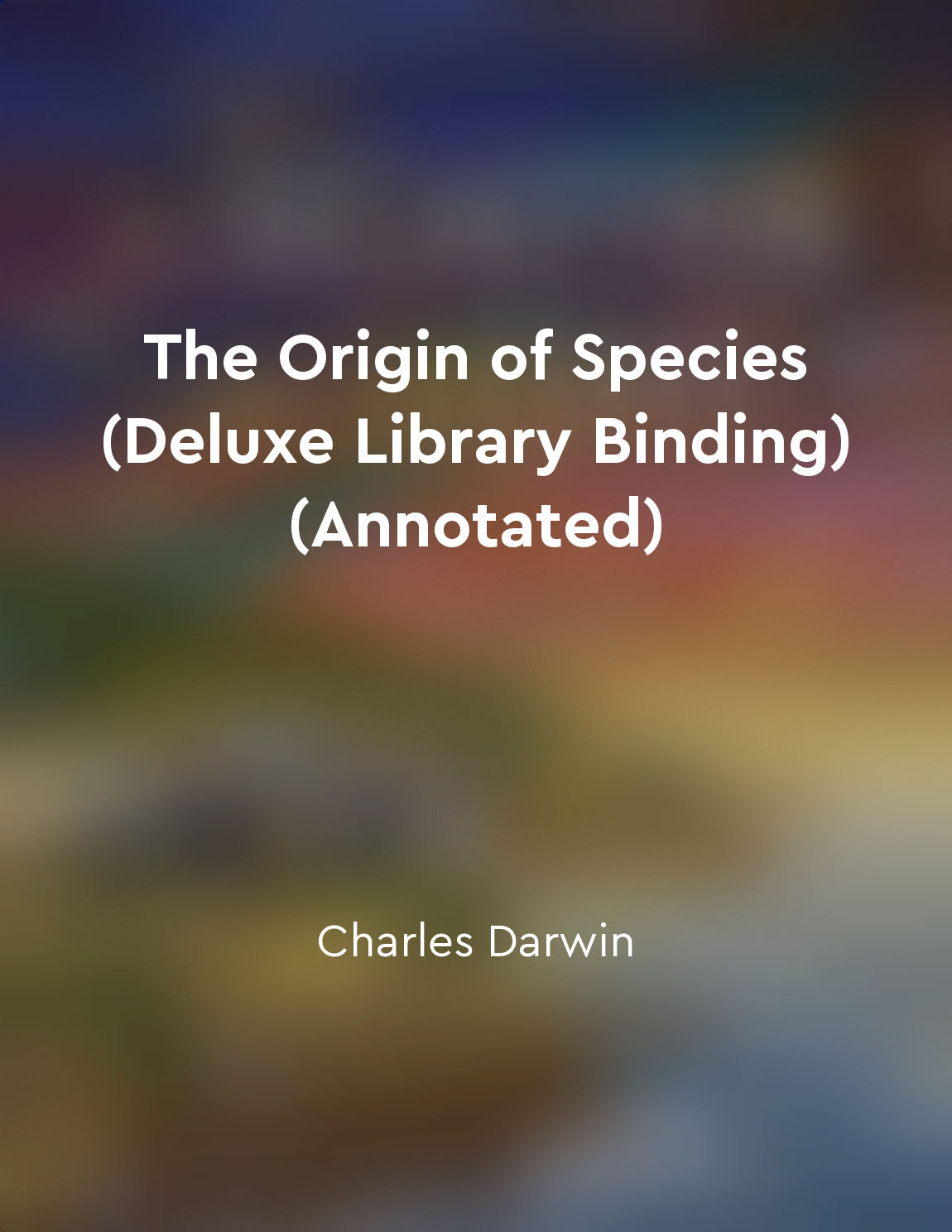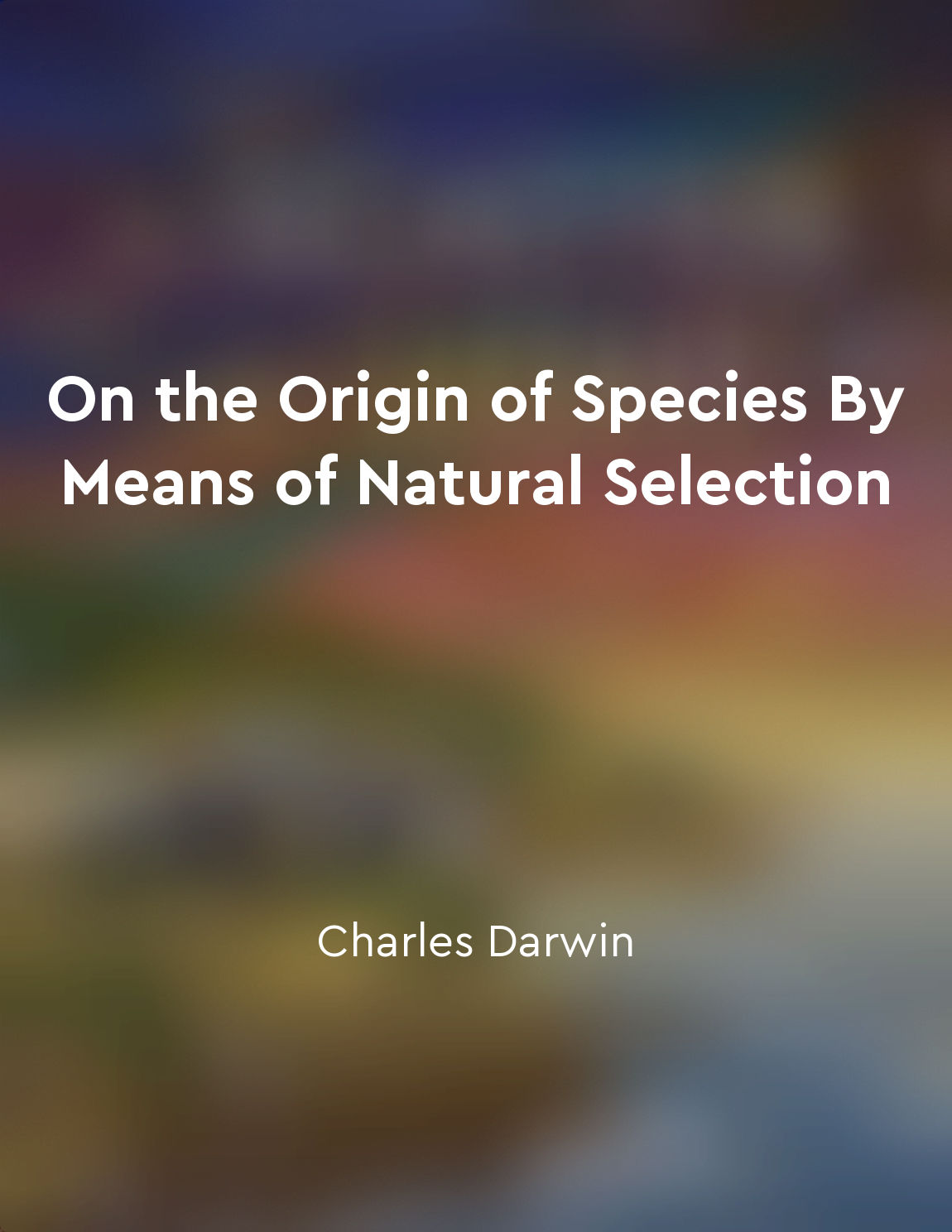The process of evolution is slow and gradual from "summary" of The Descent of Man by Charles Darwin
In the long history of the world, the process of evolution has been a slow and gradual one. It is a process that takes place over countless generations, with small changes accumulating over time to produce significant differences. This gradual nature of evolution can be seen in the fossil record, where we can observe the gradual transition of species from one form to another. One of the key mechanisms driving this slow process of evolution is natural selection. Natural selection is the process by which certain traits are favored over others, leading to the gradual accumulation of beneficial traits in a population. These beneficial traits increase the chances of survival and reproduction, ultimately leading to the evolution of new species o...Similar Posts

Take calculated risks
Taking calculated risks is an essential aspect of adaptation. It involves making decisions that have the potential to lead to f...
Genetic counseling helps individuals understand their genetic risks
Genetic counseling is a process that involves providing information and support to individuals who may be at risk of genetic di...

The circulatory system transports nutrients and wastes
The circulatory system plays a vital role in the body by transporting essential nutrients and removing waste products. This sys...

Darwin's theory revolutionizes scientific understanding
Charles Darwin's theory of evolution by natural selection has had a profound impact on scientific thought since its publication...
Evolution is a process guided by God
Evolution is a process that has generated the magnificent tapestry of biological diversity that surrounds us. The mechanism tha...

Adaptation to environment
The ability of living beings to adapt to their environment is a fundamental aspect of the natural world. This process of adapta...

Artificial selection in domesticated animals
Artificial selection plays a crucial role in the breeding of domesticated animals. Humans have long been engaged in the practic...
